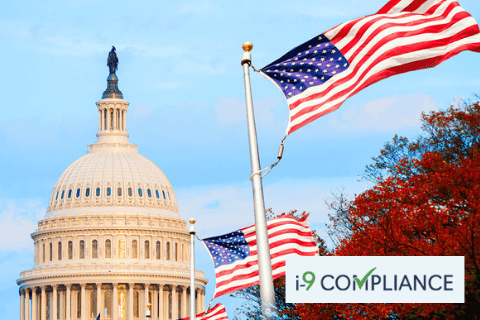New Senate Bill Proposes Reforms to the H-1B and L-1 Visa Programs

H-1B visas are a type of nonimmigrant visa that U.S. companies can use to hire foreign workers in specialty occupations that require technical or theoretical expertise. An H-1B visa is generally the most popular work visa for foreign workers to attempt to obtain.
A group of senators in the Senate are currently trying to make changes to both the L-1 and H-1B visa programs. The senators claim that the changes they are trying to make will help protect American workers and stop foreign outsourcing companies that use these programs to keep Americans from obtaining high-skilled jobs.
Technology companies use H-1B visas to hire tens of thousands of employees every year, often from countries like China or India. The H-1B and L-1 Visa Reform Act is intended to reduce abuse and fraud as well as protect visa holders and American workers. It also will require increased transparency when companies recruit foreign workers.
The H-1B and L-1 Visa Reform Act would mandate that the U.S. Citizenship and Immigration Services prioritize H-1B visas during the yearly allocation. The new system would give preference for H-1B visas to STEM advanced degree students who are obtaining their education in the United States. Additionally, other foreign nationals with advanced degrees obtained in the United States would be given priority, as well as foreign nationals receiving high wages or who have valuable skills.
The Act would also ban employers from replacing American workers with L-1 or H-1B visa holders, and if a company does hire an H-1B worker, it must not negatively affect the working conditions of American workers in similar positions. This applies to H-1B workers placed at the worksite by other employers as well.
The senators claim that the bill would target companies that import large numbers of foreign national workers with L-1 and H-1B visas in order to train them and then return them to their own countries to do the same job. This bill would ban businesses that have 50 or more employees, with half or more of these being L-1 or H-1B employees, from employing more H-1B employees. The U.S. Department of Labor would have enhanced authority to monitor compliance with the Act and penalize employers who don’t comply.
The Act would also require that a considerable amount of data about the L-1 and H-1B programs be produced, such as place of employment, wage data, gender, and worker education levels.
If passed, the H-1B and L-1 Visa Reform Act will reform the L-1 and H-1B programs. It would establish a wage floor that would apply to L-1 workers along with giving the U.S. Department of Homeland Security the authority to audit, investigate, and enforce the requirements of the L-1 program. Companies would also be required to provide assurance that company transfers are legitimate and are occurring between actual branches of the company. The Act also intends to change the definition being used for specialized knowledge to ensure it is only for actually key personnel.
Learn more about automating your employment eligibility verification and ensuring compliance with I-9 Compliance.